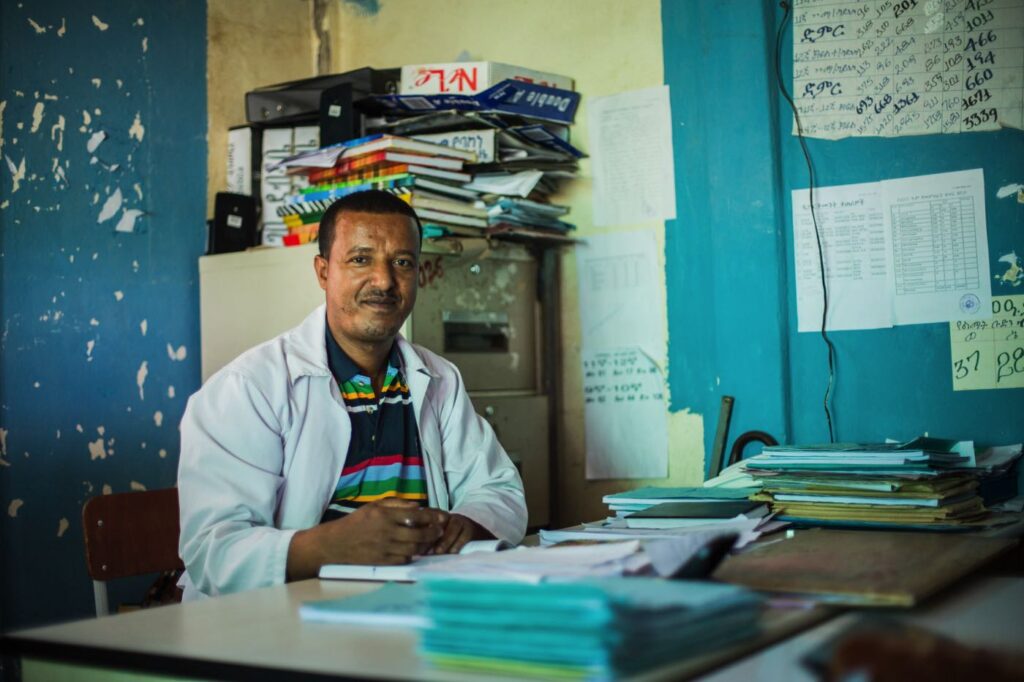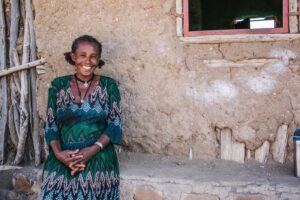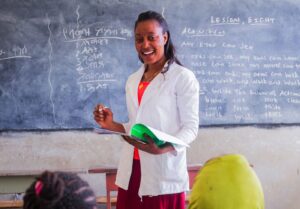Students murmur as it is not customary for a teacher to come to the classroom with a baby on her back. Tiruwork lullabies her child to sleep while her students work on their class assignments. It didn’t take long for the talk of a teacher carrying a baby to class to reach the director of the school.
“Tiruwork must have had no one to leave her child with, to bring him to class with her,” says Tarekegn Degefu, Director of Woretta Secondary and Preparatory School, in Amhara region, Ethiopia. He added that, he would have reacted differently if he didn’t take part in the training on GRP (Gender responsive Pedagogy), GRA (Gender Responsive Assessment) and Gender Audit organized by UNESCO-HNA.
It is this incident that provoked Tarekegn, to start a day care service in the school for female teachers and other female staff in Woretta Secondary and Preparatory School. Soon after he announced the news of the day care, 10 teachers registered who had children between the ages of 0-4 years. The other female teachers were delighted with the idea that they volunteered to take turns during their break hours to care for the children. “I was so happy when I heard about the day care, I can now bring my child here and I don’t have to worry much since she won’t be so far away from me,” says Truaynet, one of the teachers at Woretta Secondary and Preparatory School.
Tarekegn grew up in Woretta town, studied in the same school he currently directs, and finished his first degree in English and his Masters in Leadership in Bahir Dar University. He has been working in Woretta Secondary and Preparatory School for 10 years and aspires to give back to his school and community he grew up in. Though Tarekegn has served in the field of education for a decade and even has been part of the leadership of gender club since he started teaching, he didn’t have the awareness on gender responsive pedagogy. He mentioned that, the training not only helped him to implement gender equality in the school but also in his personal life. “I now assist my wife with household chores and in taking care of our children,” says Tarekegn.
Though Tarekegn says that his personal views on gender equality changed following the GRP training; he struggles to change the working culture in the school. “The training changes my mindset totally towards gender equality, but the challenge is implementing what I have learned in the school,” he says.
Tarekegn now works hard to create the awareness on gender equity for the teachers and non-teaching staff in the school he administers and uses every opportunity to pass on the message he learned at the training. He empowers mini media the club leaders. He also works towards a better environment where girls can achieve well. He also plans to make a girls corner, separate toilet and library space available for the girls in the school. Tarekegn is also working towards buying more mattresses and toys available for the day care room.
Woretta secondary and Preparatory school has 3746 students from which 1624 are male and 1455 are female. And it has 200 teachers out of which 61 are female and 139 are male. The school so far has 4 female and 8 male teachers trained on GRP, participated in and developed a Participatory Gender Audit (PGA) and partook in experience sharing workshops. Class monitors of 11th and 12th grade (2 from each section) and 50 members of clubs have directly taken training on GRP and they have trained students in 9th and 10th grade. Thus, Tarekegn has learned and incorporated gender responsiveness in the school he directs through various measures.
The UNESCO-HNA projects aims at contributing to ensuring girls’ right to quality and relevant education whereby all girls’ access, stay, transition and achieve education for better lives/livelihoods. UNESCO-IICBA provides technical backstopping in institutional capacity building for gender mainstreaming in education, GRP and teacher training in the UNESCO-HNA project in Ethiopia.






